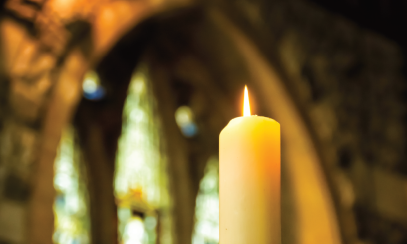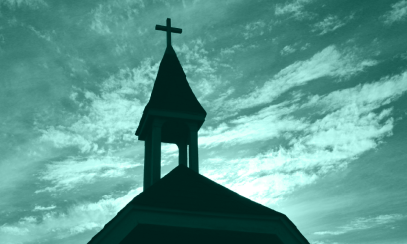The Church's response to Sept 11: Can we go to war?
Dear Fr. Joe: I have read about and witnessed personally priests and people who work in the Church saying that we shouldn’t go to war over the terrorist attacks. Instead, we need to forgive and search for an answer without killing. This makes me angry. Are we supposed to just let people do this to us? Does the Church really say that we can never go to war? If so, how do we protect ourselves from this happening again?
This is a difficult issue to face. Our feelings of anger are a normal part of the human experience. We need to face these raw emotions in a realistic way and not sugarcoat what we feel. The challenge for us is not to let these feelings control us or push us into acting in a way that isn’t holy. Some will tell you that we should never go to war; some seem to want it. Both justify their options with the Catholic faith. So, to avoid confusion, let’s go right to the source—the United States Conference of Catholic Bishops. You can find a statement at: http://www.nccbuscc.org/comm/archives/2001/01-166.htm.
In a letter to President George Bush, Galveston-Houston Bishop Joseph A. Fiorenza, president of the U.S. Conference of Catholic Bishops, expressed support for efforts “to seek out and hold accountable” those responsible for the Sept. 11 terrorist attacks on the United States. Bishop Fiorenza also stated that the bishops were praying for President Bush to “find just, wise and effective ways to respond with resolve and restraint to the long-term task of ending terrorism.”
In the letter dated Sept. 19, the bishop continued by saying members of the U.S. C.C.B. “stand in solidarity with you and the American people in prayer for our beloved nation at this time of terrible loss and momentous decisions.”
Referring to the nation’s “moral right” and “grace obligation to defend the common good” against such attacks, Bishop Fiorenza said the bishops “support efforts by our nation and the global community to seek out and hold accountable, in accord with national and international law, those individuals, groups and governments which are responsible.”
“While we must take into account the unique nature of this new kind of terrorist threat, any military response must be in accord with sound moral principles, notably the norms of the just war tradition such as probability of success, civilian immunity, and proportionality,” Bishop Fiorenza wrote. “Our nation must ensure that the grave obligation to protect innocent human life governs our nation’s political and military decisions.”
“We pray that you will find just, wise and effective ways to respond with resolve and restraint to the long-term task of ending terrorism, confident, in the words of Pope John Paul II, that American will not ‘give in to the temptation of hatred and violence, but (will) commit themselves to serving justice and peace,” concluded Bishop Fiorenza.
So, having read that statement, what may help us is to differentiate between justice and vengeance, forgiveness and victimization.
Justice in this case is a proportional response to the crime (See Catechism of the Catholic Church 2408-2412). Thousands of people were killed while many thousands of children lost a mother or father or were orphaned. Lives were ruined and an entire nation was left fearing another attack. Those responsible must be punished in a fashion that recognizes the extreme loss of innocent life. Sometimes the pursuit of justice may entail violence—especially since the kind of people who did this may not surrender to the proper authorities.
What justice does not entail is vengeance. Vengeance is a desire—a craving—to inflict harm on someone who has harmed us. Tragically, in this enterprise, we often become just like then enemy we hate (CCC 1933).
What about forgiveness? Forgiveness is something our faith literally demands we do. Let’s also take a look at what that means.
Forgiveness does not mean we remove the consequences of a person’s actions. It does not mean that we pretend nothing happened.
Forgiveness means we no longer give the person who hurt us power over us. We don’t allow our anger or hurt to dictate our actions or our future. It’s a process where, day by day, we pray that God will help us seek not hatred but justice for ourselves and those whom we call enemies (CCC 2840, 2845). If bringing those responsible for the terrorist attacks involves warfare, the U.S. bishops remind us that there are “sound moral principles, notably the norms of the just war tradition such as probability of success, civilian immunity, and proportionality” that we must consider in this effort (CCC 2309, 2312, 2313).
Finally, we have to remember that there is another way to protect ourselves from this happening again and that is to evaluate our place in the world as Americans. How can we act in a fashion that promotes justice and peace throughout the world? Where we have failed in the past, let’s move beyond recriminations and seek to do better. Where we have succeeded, let’s continue to do those things that help (CCC 2304).
Victimization is what happens to us when we don’t deal properly with our feelings of hurt and anger as a result of the attacks. Instead, we go into a downward spiral, letting our anger or fear consume us. We begin to see even the smallest thing that happens as somehow destroying us. We look for pain and try to make it ours, even when it’s not appropriate. This is a thing we need to avoid at all costs. It’s just not healthy.
What do we do? I have found great comfort in the story of Jesus going to Mary and Martha’s house. In the story, Martha was busy with the affairs of the home and getting everything ready for Jesus’ visit. Mary, it says, sat at Jesus’ feet and listened to him. Later (after some sisterly discussion), Jesus indicates that Mary “chose the better part” because she paused, sat at Jesus’ feet and listened to Him.
In the situation facing us in the light of Sept 11, where we are all asking what we should do, let’s recall that taking time to pause and pray should always be the first and best step.
These are my thoughts on the matter. May we—as a nation and as individuals—seek to be guided by our faith and love of God. And if you only read one section of the Catechism as a result of this article, please read 2307-2314. Enjoy another day in God’s presence.



